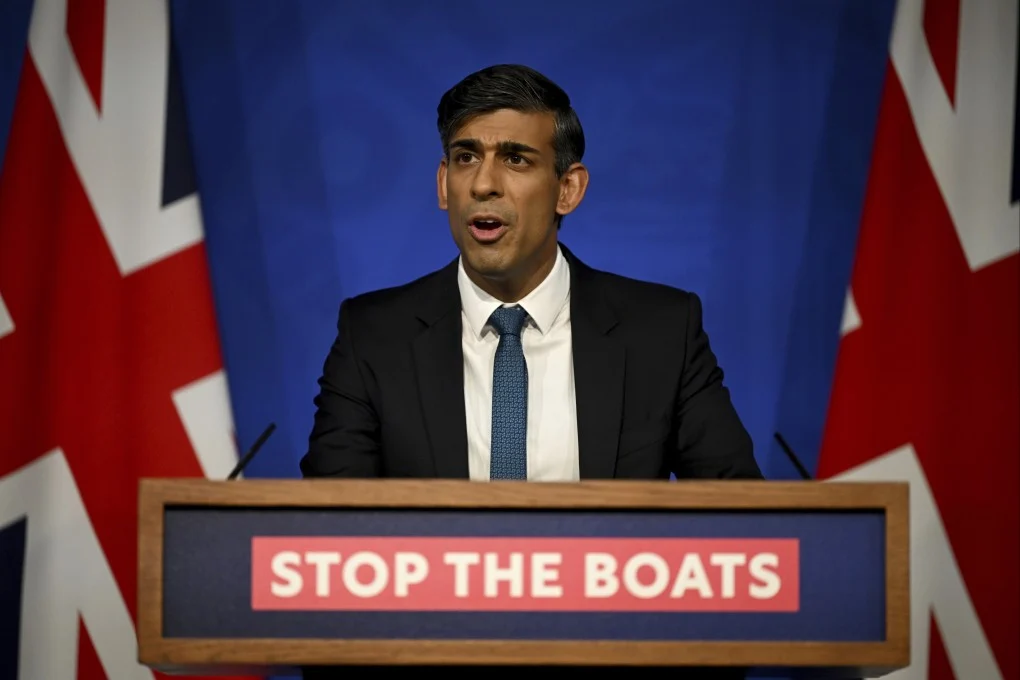By Jessi Kume
In April 2022 the UK and Rwanda signed an agreement for the UK to deport people seeking asylum in Britain to Rwanda. The agreement is known as “The Migration and Economic Development Partnership” or simply the Rwanda Plan.
The Rwanda plan emerged as part of the UK government’s increasingly hardline approach to immigration, spearheaded under Prime Minister Boris Johnson and continued by his fellow conservative, Rishi Sunak. The plan entails that asylum seekers arriving in Britain through “unauthorized”1 means—such as crossing the English Channel—would be deported to Rwanda. Once there, they would have their asylum claims processed under the Rwandan system, with no prospect of return to the UK, even if their claims were successful.
The policy’s justification is ostensibly to deter “irregular” migration and disrupt the business model of human traffickers. However, reality paints a different picture. The deal with Rwanda, worth £140 million, does not guarantee safeguards for the rights of asylum seekers, bypassing the UK’s obligations under international law- including the 1951 Refugee Convention. From the start, the policy has been mired in controversy.
In November 2023, The British Supreme Court ruled that the plan to send migrants to Rwanda was unlawful.
The Supreme Court highlighted the significant risk that asylum claims would not be adequately evaluated within Rwanda’s asylum system. Moreover, asylum seekers could face direct or indirect return to their countries of origin and would be exposed to a risk of mistreatment. However, just in October 2023 Sunak announced the start of his electoral campaign. Of course, his political communication strategy was heavily based on the “stop the boats” slogan. In fact, Rishi Sunak was fighting to save the Rwanda Plan but, more importantly, he was fighting to save his own skin.
The Rwanda Plan was the last resort to restore lost credibility on the immigration front. In truth, anyone versed in migration, international law, and human rights knows well that the Conservatives have little to no credibility when it comes to immigration. The real issue is that their policies make access routes more dangerous, restrict fundamental rights, and undermine the Rule of Law itself. In fact, Catherine Woollard, director of the European Council on Refugees and Exiles (ECRE) confirmed that an almost inevitable Rule of Law crisis would occurr if the UK government failed to respect the Supreme Court’s decision.
Rwanda Plan would go ahead “without ifs or buts” even suggesting that the government might withdraw from the European Convention on Human Rights. Jenrick himself told The Telegraph, “I’ve been clear: we must do whatever it takes”. The British government thus declared itself ready to remove legal obstacles to push the Rwanda Plan through, even when those legal obstacles were, in fact, human rights.
Fortunately, Rishi Sunak resigned as Prime Minister on July 5, 2024 following a significant loss in public support after Conservative Party’s poor performance in the national election. His resignation marked the end of his tenure after 20 months in office, and the leader of the Labour Party, Keir Starmer, was set to take over as Prime Minister.
Keir Starmer has said he will not continue with the previous Conservative government’s policy to deport asylum seekers to Rwanda. Does this mean we can catch a breath? Well, not really. Securing the borders and externalization remain at the top of the labourist agenda, but that’s a discussion for another time. In any case, we have seen how close it got to the implementation of the Rwanda Plan and how Conservatives are ready to jeopardize fundamental rights and the Rule of Law itself just to pursue their obsession with immigration.
- The term “unauthorized” is placed in quotation marks to avoid contributing to the criminalization of freedom of movement. Regularity, irregularity, authorized, and unauthorized are labels generated by border controls, visas and passports. ↩︎

